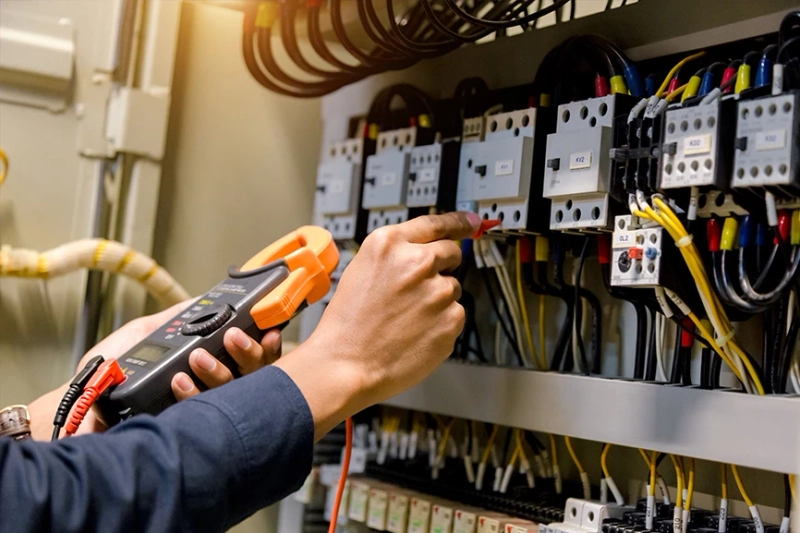A Day in the Life of an Electrician
You could be keen on becoming an electrician West End if you appreciate working with your hands. Electricians are in a growing market around the nation to make a respectable income. Becoming one could be exactly what you're searching for in terms of a long-term career.
However, rushing into a had to do some homework is not a good idea. As a result, we've created the following article. It tells you all you need to know about a normal day in the life of an electrician.
Are There Different Types of Jobs for Electricians?
Because electricians work with a range of consumers, they can work in various settings. An electrician, for example, may spend most of their time working in residential residences, industries, commercial structures, or construction sites. As electricians go from worksite to job site, they might be expected to travel considerable distances.
Depending on the task, electricians may spend a lot of time indoors or outside. They are usually asked to stand and kneel for lengthy hours, which can be taxing. Electricians who work in factories or construction sites may be subjected to loud noises and heights.
Is It Dangerous To Work As An Electrician?
Electricians face a few key hazards while on the job. People who work with electricity must exercise caution due to the potential harm that electricity can create. As a result, electricians almost always don protective gear like gloves and goggles to keep themselves safe.
Here are just a few of the more prevalent injuries that electricians have to deal with:
ShocksFallsBurnsBruisesAdditionally, there were also a few small wounds. In some circumstances, electrician-related accidents might be fatal. Therefore, a person in this situation must use caution in their actions.
However, if proper precautions are taken regularly, an electrician's employment can be quite safe compared to other industrial positions.
One of the best ways to understand what a job entails is to observe how the ordinary person spends their time. This is what a typical day looks like for an electrician.
Acquainting Oneself With The System
An electrician will often begin work between 7:00 and 8:00 am. When they start their shifts, they look at the jobs they'll be working on that day and put on their safety gear. An electrician is required by law to wear protective gear such as electrical safety gloves, goggles, and steel-toed boots
During this time of day, an electrician will double-check their work designs. Circuit boards and outlets will be placed where they need to be. First, electricians must verify that the plans they are following adhere to all relevant building codes.
After this, an electrician will get the necessary materials for the day's work. Assignments are no longer an issue for them.
Bringing the Workday to a Close
Following their morning preparations, an electrician will begin their daily routine. As a result, this might include a wide variety of things:
There are wires linked and disconnected to fuses, circuit breakers, transformers, and other devices.
Repairing malfunctioning electrical fixtures and components.To guarantee that all of the electrical systems are in proper functioning order.Assembling and installing new electrical fixturesOhmmeters, voltmeters, and oscilloscopes are used to check electrical systems.What an electrician does on a typical day depends on the work they are engaged in.
For example, some electricians specialize in the maintenance of aging electrical systems. In contrast, others specialize in the installation of brand-new ones.
Leaving and Returning
Once an electrician's tasks are accomplished, a manager may want to look at what they have done.
As soon as the electrician has completed their work, the supervisor will let them know if any changes need to be made.
Now that the electrician has finished his work, he can go back to his house. Put away the tools you used earlier, remove your safety gear and leave your workstation. A typical day for an electrician can last from 3:30 to 5:30 pm. The electrician may have to stay late if unanticipated issues arise during a task.
On-the-job training for electricians is possible but not guaranteed. One of the perks of working as an electrician is that you don't need a four-year degree. A college degree is not required.
Many electricians get the education and experience to thrive in their field through an apprenticeship. For some time, an apprentice works under the supervision of an experienced electrician. This gives young electricians the hands-on experience they'll need when they leave the company and start working on their projects. As they learn their craft, apprentice electricians are compensated.
It is possible to find an electrician apprenticeship in many places.
Local trade colleges frequently offer apprenticeship programs.
After completing an apprenticeship, these programs may be able to connect you with potential employers. An electrician's union and a non-union group may be able to help you get an apprenticeship. Find out whether there are any apprenticeship opportunities in your region and the benefits.


